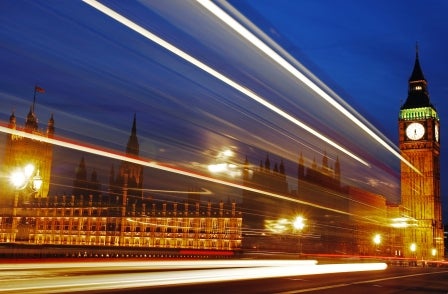
Press agencies, freelances and campaigners fear a Government shake-up of copyright law will make newsgathering “less viable”.
t is claimed that a number of sections of the Enterprise and Regulation Reform Bill, currently going through Parliament, would weaken copyright.
And last month a consortium of press agencies – including Associated Press, Thomson Reuters, Press Association and Getty Images – submitted a formal challenge to the Bill.
In addition to flagging up certain sections, the group expressed concern over the fact that copyright laws could be enacted by secondary legislation – without the full scrutiny of Parliament.
The consortium’s Letter Before Claim, sent to Business Secretary Vince Cable, was the first step in initiating a judicial review process.
Areas of concern include:
Widening exceptions to copyright. Amongst other things, this would extend fair dealing for “quotation, criticism and review” and “parody, caricature and pastiche”.
Paul Ellis, co-founder of campaign group Stop 43, said: “The ostensible purpose of all of the proposed copyright changes is to stimulate economic growth.
“Most economists agree that growth comes from the provision of strong, enforceable property rights, and functioning markets within which to trade.
“Why, then, in the name of growth, is the Government attempting to weaken creators’ property rights, confiscate their property, and remove markets via exceptions to copyright?”
The shortening life of copyright. This proposal would remove transitional provisions in the 1988 Copyright Act and shorten the term of protection for many unpublished works.
The consortium said the proposal “again removes the ability of owners of copyrighted works to be compensated for the commercial use of their property”.
Extended collective licensing. Collecting societies currently issue licences for some uses of copyright works belonging to their members, and redistribute the licence fees.
Sign-up would be automatic, so the collecting societies would be able to licence non-members’ works unless the authors opt out of the scheme.
The consortium said that this would allow “for third party organisations to commercially exploit the copyrighted works of others without their prior consent”.
Reuters global editor, news rights and access, Nicole Courtney-Leaver said: “From our perspective newsgathering costs an awful lot of money and if we’re not able to pull back any of that money through licensing it’s got to figure that newsgathering then becomes a less viable opportunity for us.
“All the agencies are in the same boat at this stage. As are all freelance photographers, all freelance journalists.”
Courtney-Leaver said there seemed to be “very little understanding” of how the copyright changes will work practically because “so little research has gone into it”.
Former lawyer Lord Clement-Jones, a copyright expert, is currently in the process of amending the bill and told Press Gazette he is confident issues can be resolved.
“There is certainly a case to answer,” he said. “A number of very challenging questions will be put to the Government during the course of the
Enterprise Bill and I hope that we can amend the Bill through the Lords process so that it reaches a proper consensus on the value of intellectual property rights.”
Click here to read a blog post by Paul Ellis, co-founder of Stop 43
Email pged@pressgazette.co.uk to point out mistakes, provide story tips or send in a letter for publication on our "Letters Page" blog
